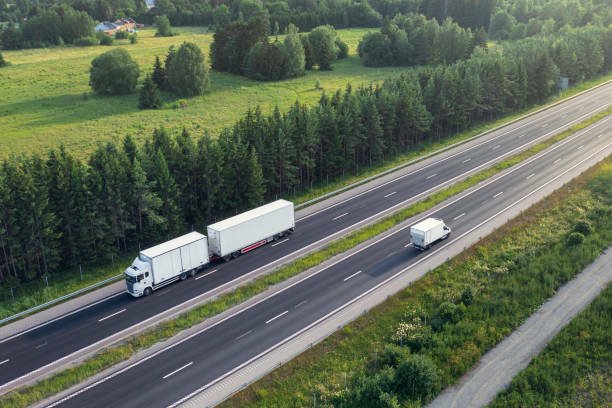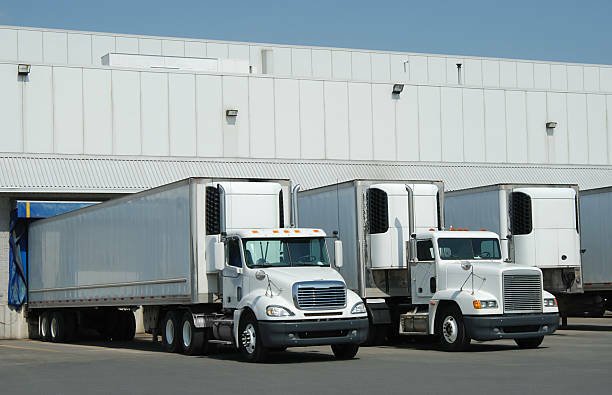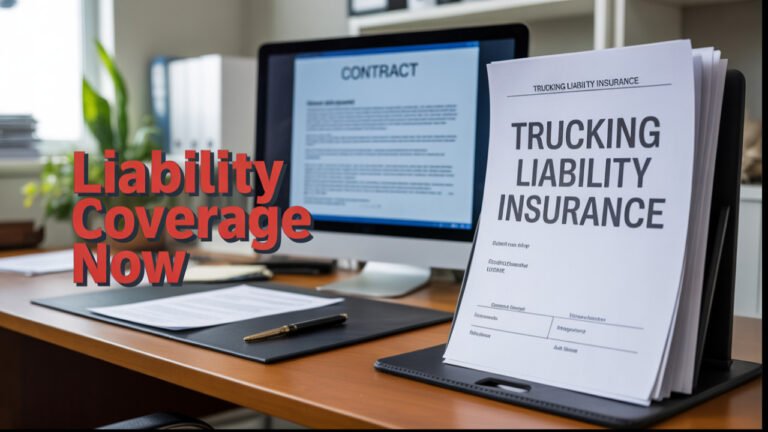Are you certain your policy matches the real risks your fleet faces on and off the road?
You need clear, practical protection that moves as fast as your operations. Securing the right trucking liability insurance helps you protect drivers, vehicles, and your business reputation when claims arise.
Progressive now offers Motor Truck General Liability as an add-on to commercial auto policies to align coverage with modern operations. GEICO brings 85+ years, an A++ A.M. Best rating, and fast start options with fleet tools that help you stay compliant and competitive.
Choose a company that knows the industry, simplifies filings and certificates, and builds coverage that scales as you add vehicles and lanes. That approach lets you bid with confidence and manage risk more effectively.
Key Takeaways
- Match your policy to how your fleet operates today to reduce exposure.
- Pair essential coverage with targeted options for on-road and off-road risks.
- Work with carriers that offer financial strength and fleet management tools.
- Proper coverage helps you meet broker and shipper requirements quickly.
- Scalable solutions keep your company compliant as you grow.
- Fast filings and ID cards keep trucks moving and bids credible.
Protect your fleet today with comprehensive trucking liability insurance
Start protecting your truck the moment you need to—online policy setup and instant ID cards make it possible.
Immediate activation lets you get a truck on the road with required proof of coverage the same day. GEICO’s digital portal issues ID cards, endorsements, and documents quickly so you meet broker and shipper demands.
Tailored options include base liability, cargo protection, and premises-related cover for customer interactions. These choices fit dry vans, reefers, flatbeds, and auto haulers so you pay for what you need while guarding against high-severity claims.

- Activate coverage immediately and reduce downtime.
- Streamline admin with online access to ID cards and endorsements.
- Demonstrate professionalism to customers and brokers with up-to-date certificates.
- Scale protection as your company grows across local, regional, and long-haul lanes.
Work with a partner that understands truck operations and helps you choose the right coverage and service levels. That support can improve safety profiles, free up admin time, and help you win better loads.
What trucking liability insurance covers and how it differs from other liability
Don’t guess which policy responds when an incident happens off the road. You need a clear split between crashes that occur while a vehicle is operated and incidents tied to business activities at a shop, dock, or office.

Primary auto vs. motor truck general liability
Primary auto covers injury and property damage to others from at-fault accidents on public roads.
Motor truck general liability is added to a commercial auto policy to cover off-road exposures. Examples include slips on your premises, damage from an erroneous delivery, or a fire at a short-term rental tied to your operation.
General liability for non-trucking businesses vs. for-hire risks
General liability insurance for a typical business covers common premises and advertising risks. MTGL, by contrast, is tailored to for-hire operations and delivery-related exposures you won’t find in a standard policy.
Non-trucking and bobtail for personal-use scenarios
Non-trucking coverage helps permanently leased drivers when they use a power unit off-dispatch for personal, non-economic trips.
Bobtail coverage applies when the power unit runs without a trailer and is different in trigger and scope from non-trucking protection.
| Scenario | Primary Auto | Motor Truck / MTGL |
|---|---|---|
| At-fault crash on public road | Yes | No |
| Slip-and-fall at your terminal | No | Yes |
| Erroneous delivery damages product | No | Yes |
| Driver using unit for personal errand (permanently leased) | Depends | Non-trucking or bobtail |
- Match your selections so shippers and brokers see both on-road and premises protection.
- Document which types of coverage respond to which incidents to reduce confusion among others.
Trucking liability insurance coverages and add-ons you can tailor to your operation
Design coverage layers that match your routes, cargo types, and yard exposures.
Bodily injury and property damage
You protect against third-party claims for injury and property damage that arise from daily operations. This provides a financial backstop when someone alleges harm from a vehicle-related or on-site event.
Personal and advertising injury
Add personal and advertising injury to guard your reputation. This covers offenses like libel or slander tied to marketing or communications.
Medical payments and premises incidents
Medical payments help resolve minor visitor injuries fast, such as a slip on your ramp. Covering premises-related incidents reduces friction with customers and speeds claim handling.
Products-completed operations and erroneous delivery
Products-completed operations protect you from damage caused after delivery. Erroneous delivery coverage handles mistakes that destroy a customer’s production run.
Motor truck cargo, refrigeration, and physical damage
Motor truck cargo and cargo insurance options protect goods in transit. You can add refrigeration breakdown for temperature-sensitive loads.
Trailer interchange and non-owned trailer physical damage
Trailer interchange and non-owned trailer physical damage cover trailers you use under contract. Hired and non-owned auto options cover borrowed vehicles used for business.
| Coverage | What it protects | When to add |
|---|---|---|
| Bodily Injury & Property Damage | Third-party injury and property claims | Always for for-hire operations |
| Motor Truck Cargo | Loss or damage to freight in transit | If you haul customer goods or valuables |
| Refrigeration Breakdown | Spoilage of temperature-sensitive loads | When hauling perishables |
| Non-Owned Trailer PD | Physical damage to trailers you don’t own | When using leased or interchange trailers |
- Align limits and endorsements with broker and shipper requirements.
- Manage deductibles to balance premium with risk transfer for truck cargo and equipment.
- Centralize coverage decisions so layers complement each other and reduce gaps.
Stay compliant: filings, federal endorsements, and state requirements
Regulatory filings and endorsements prove you carry required federal and state financial responsibility when you cross state lines.
Get paperwork right and keep trucks moving. FMCSA financial responsibility endorsements show interstate regulators you meet minimum limits under federal rules. Many states also require separate filings that affect your operating authority.
FMCSA financial responsibility endorsements for interstate operations
You ensure FMCSA endorsements are in place so regulators can verify required insurance limits quickly.
State-level filings and how they affect your authority
States may ask for additional certificates or endorsements. Missing filings can suspend your authority or delay loads.
Fast filings turnaround to keep you on the road
Work with a provider that moves fast. A team that completes filings in 24–48 hours reduces downtime. Verify policy, limits, and endorsements on certificates so others can confirm compliance without back-and-forth.
- Coordinate commercial auto documents with cargo and public responsibility requirements.
- Keep vehicle, driver, and operating information current to avoid discrepancies.
- Use a single point of contact so regulators and brokers receive consistent documentation.
Eligibility, availability, and restrictions you should know
Know who qualifies and what limits apply before you buy. Rules vary by carrier and by state, so confirm eligibility for your operation and the vehicles you run.
For-hire carriers, private providers, and leased owner-operators
You confirm eligibility if you operate as a for-hire trucker or motor carrier hauling others’ property for a fee. Some products require an underlying primary policy and won’t apply to every business model.
Vehicle exclusions, operating radius, fleet policy limits, and state availability
Carriers often limit availability by states and operating radius. For example, certain motor add-ons may not be offered for fleets or beyond a defined 500-mile radius.
Review excluded vehicle types carefully. Typical exclusions include garbage trucks, cement trucks, limos, hearses, buses, passenger vans, and ice cream trucks.
- Confirm your policy and limits match the risks you routinely face.
- Set clear expectations with drivers about radius and permitted stops.
- Document employee roles for on-premises tasks tied to coverage triggers.
- Plan alternatives if a product isn’t available for fleets as you grow.
Pricing factors, limits, and discounts for commercial trucking insurance
Underwriters price risk by combining driver records, cargo types, and the distance your units travel. That mix determines what you pay and which limits you need to meet customer contracts.
Driver history, age, and inspection records
Your drivers’ MVRs and roadside inspection results matter most. Clean crew records and a strong safety culture lower claims and stabilize rates.
Truck type, condition, cargo class, and operating radius
Vehicle specs and upkeep affect premiums. Heavier loads, specialized cargo, or long-haul lanes can increase risk of damage and claims.
USDOT compliance and coverage options selected
Good USDOT standing and tidy inspection logs help underwriters favor your policy. Choose options and limits that match contracts—not more than you need.
Ways to save
- Bundle policies to earn multi-policy credits.
- Use accident-free history (five years) to seek discounts.
- Check for military and other eligibility savings.
Keep documentation current so quotes reflect real exposure. Immediate coverage availability also helps you win loads without delay.
Service you can count on: specialist claims and fleet management support
When a loss happens, fast answers and clear options protect your revenue and reputation.
Experienced claims teams and financial strength
You rely on claims specialists who know the industry and common operational exposures. Adjusters with haulage and dock experience speed investigations and help close files faster.
“Quick, knowledgeable handling reduces downtime and gets drivers back to work.”
Choose a company with solid ratings and reserves so you know a large claim won’t threaten your cash flow. That financial backing matters when customers expect timely recoveries.
Streamline policy service with online portals for cards, endorsements, certificates, payments, and policy changes. Instant document access helps you meet broker and shipper demands without delay.
- Specialist claims teams that understand dock incidents and road collisions.
- In-house adjusters and appointed agencies focused on your business.
- Fast ID cards and self-service tools to add or remove units quickly.
- Coordination between claims and safety teams to reduce repeat losses.
Practical benefits for your business
You improve uptime, simplify administration, and build long-term partnerships with providers that invest in the sector and support customers through complex recoveries.
Get a commercial trucking insurance quote now
Start a quote today and secure the proof of coverage you need to keep operations moving.
Bind a policy fast. GEICO can bind coverage immediately and finish filings in 24–48 hours after you call.
You can start, bind, and get proof of coverage so your business avoids unnecessary downtime. Online access gives ID cards and documents in minutes.
- Get guidance on limits and coverage that match your risk and contracts.
- Handle filings quickly to protect authority and keep loads moving.
- Manage policies and coordinate multiple units under one structure.
- Evaluate the addition of options as routes or customers change.
- Centralize communications with one point of contact from the company.
“Fast binding and timely filings let you bid confidently and stay compliant.”
Act now. A quick quote aligns your commercial auto and auto needs with practical protection so your business can focus on growth.
Conclusion
Bring your on-road auto protection together with clear off-road coverages so customers and regulators see exactly which policy responds after an incident.
Pair general liability insurance with primary auto limits to cover slips, dock incidents, advertising exposures, and injury or property damage tied to your operations.
Round out protection with motor truck cargo and cargo insurance for high-value loads and consider physical-damage options for non-owned trailers. Verify eligibility, radius limits, and fast filings so certificates meet broker and shipper rules.
Choose a provider that issues documents quickly and handles claims with trucking expertise. That practical approach keeps your trucks moving and your business resilient across every mile.


